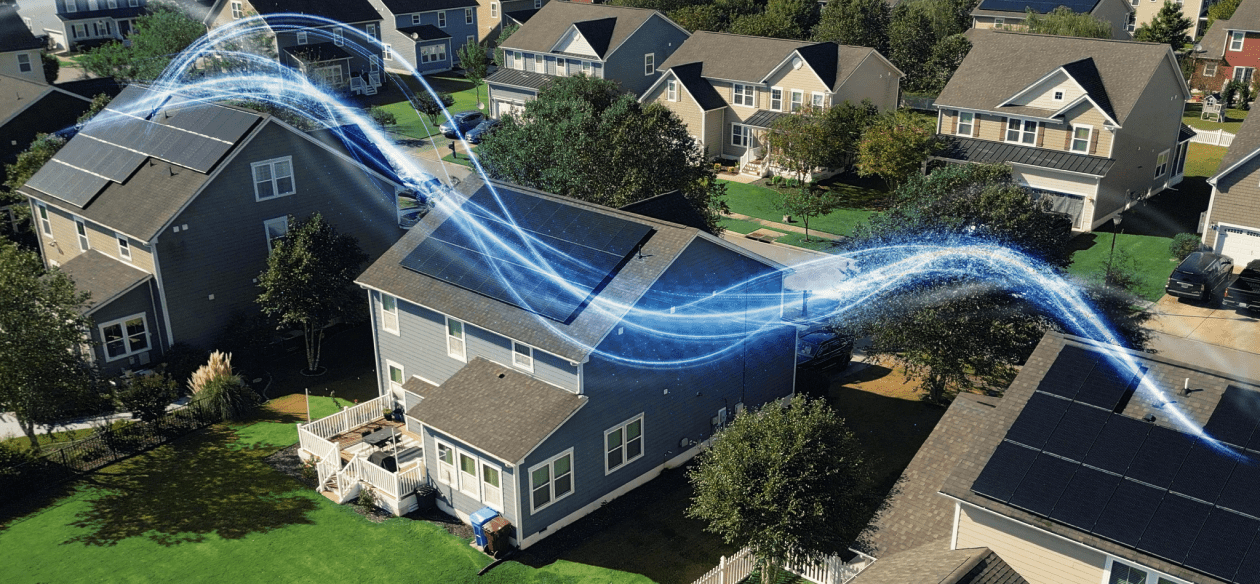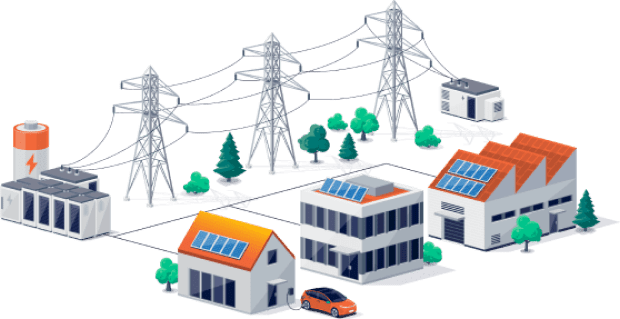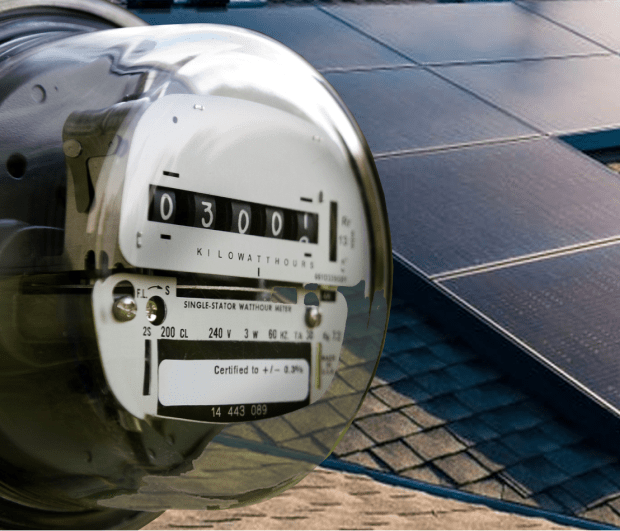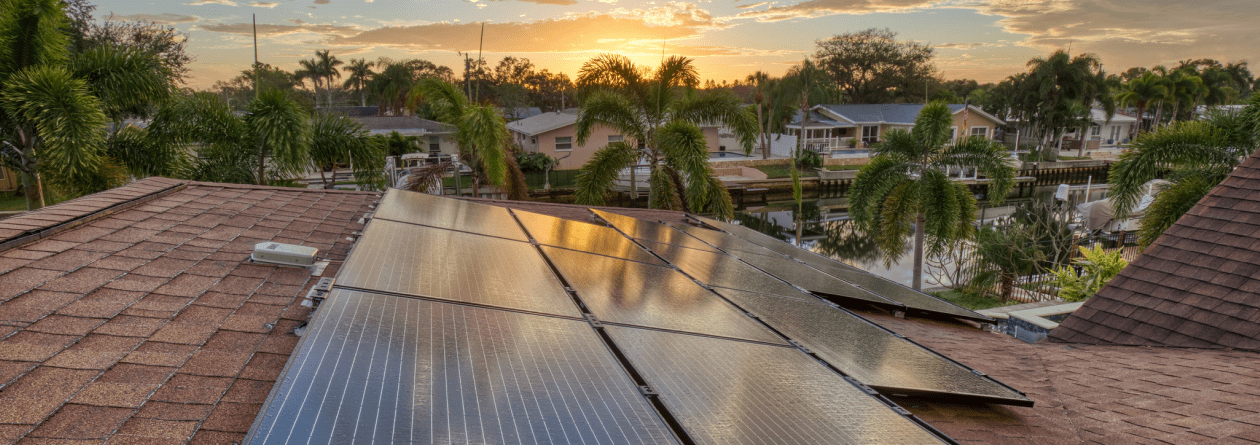

Waste not, want not. As the saying goes, if you use a resource carefully, you’ll always have what you need.
The sun is considered an infinite source of energy, expected to burn for the next 5 billion years. As long as human life exists, the sun will continue radiating an abundance of sustainable energy.
Homeowners can harness the power of sunshine with solar panels, capturing this energy to power appliances. A solar-only system cannot store energy; it can only feed your home with electricity as it’s produced — in real-time. Therefore, unless you have a battery to store excess generation, you’ll lose any solar power that you don’t immediately use.
But thanks to the concept of net metering, this valuable clean energy has somewhere to go, even if you don't have a battery. Through this arrangement, you can send any solar production (beyond what you need) to the power grid to be distributed to other ratepayers. In doing so, not only will you green your local supply of electricity, but you’ll also receive financial perks from your utility.
This way, no energy is wasted, and you’ll have the power you need when the sun is down by drawing from the grid.
Net energy metering (NEM) is a billing practice that allows you to earn credits on your electric bill for the energy you send to the grid on sunny days. Doing so helps you offset the electricity you draw from the grid at night or during stormy days when your panels aren’t producing energy. In a sense, net metering lets solar customers use the grid as a virtual battery, banking excess energy for later while using less power from fossil fuels.

You may hear net metering described as ‘getting paid to go solar,’ but this is misleading. You’re not receiving a check from your utility, but rather, you’re reducing what you owe your provider each month. That way, you only pay for your net electricity (hence the name ‘net metering’). Sometimes that balance is negative — if your solar system produces more than your household consumes — but that’s not always the case.

Understanding Net Metering Rate Structures
Net metering programs have been around in the U.S. since the early 80s. While most states have NEM-enabling legislation in place, these policies vary considerably from state to state and utility to utility. For instance, some states:
- Set a cap on how much credit you can receive
- Let your NEM credits roll over from month-to-month
- Have NEM policies that only apply to certain utilities (like investor-owned utilities)
- Enact policies that apply to all utilities (IOUs, co-ops, municipal utilities)
There are also different types of NEM rate structures. The most appealing is 1-to-1 net metering, which offers solar customers bill credits at the full-retail rate of electricity. In recent years, more utilities have been challenging net metering policies, and 1-to-1 net metering has started to become a thing of the past.
Some utilities are lowering overall credit percentages while others are restricting net metering credit to ‘energy-only,’ which removes non-energy rate components like those covering the costs of transmission and distribution, plus other non-by passable charges. In states like California and Arizona, the utilities commissions are voting to replace net metering with net billing.
Net Metering vs. Net Billing
Both net metering and net billing programs provide compensation to solar customers who send solar energy to the grid — the difference is how. With net metering, credits have traditionally been equal to the retail rate of electricity (what customers pay), while net billing offers credits at the wholesale rate of electricity (what your utility pays) or some other rate, which is often much lower.
Net metering allows solar customers to ‘bank’ the earned credits, while net billing requires you to ‘sell’ your excess solar to your utility, the same way a power plant or large-scale solar facility would.
California’s NEM 3.0 is an example of the transition from net metering to net billing. Credits are based on an avoided cost calculator and vary by month, day, and even hour.

Here's everything you need to know about California’s NEM 3.0
Is Solar Still Worth It, Now that NEM Programs Are Changing?

The benefits of ‘true’ net energy metering are plentiful. Aside from making solar more financially viable, net metering encourages solar adoption and reduces the need to build new power plants and transmission infrastructure — an expensive endeavor that takes years to approve and build.
Despite the changes to some net metering programs, some type of compensation program is better than nothing. Without NEM or net energy billing, your only savings will be on the solar power you directly consume or can store if you have a battery. Any excess production that you send to the grid, you’re giving to your utility for free. Net metering programs ensure you’re compensated for the unused solar power you share.
If your utility participates in some type of NEM program, you can effectively reduce your payback period, meaning the time it takes for your solar investment to pay for itself.
Think about it this way: Anytime you replace the price of grid electricity with the lower cost of solar power, you’re saving money. Over the 25-year lifespan of your system, these savings can be significant.
What if My State Doesn’t Offer Net Metering?

As of 2024, regulatory net metering rules exist in 38 states and Washington D.C., while a handful of states have some form of net metering even though no official state policy exists.*
Many states without a NEM mandate have power companies or local governments that voluntarily offer this benefit to ratepayers. For instance, some retail energy providers (REPs) in deregulated areas of Texas offer solar buyback plans, which provide credits for solar generation — the same way net metering works — though there’s no statewide NEM policy.
If net metering isn’t available where you live, you can add a battery to your solar system and store the power your solar panels generate. That way, you can access your saved production the way you would grid electricity whenever you need it. With battery backup, you can even enjoy power if the grid goes down.*
Curious About NEM in Your Area?

